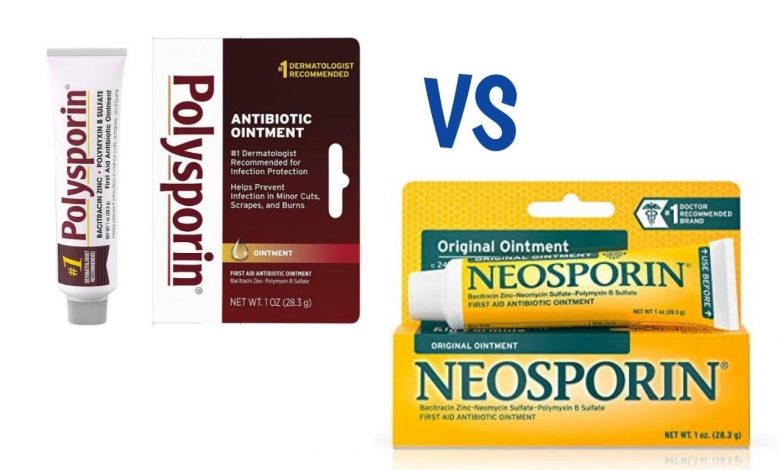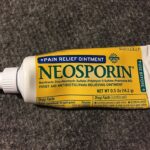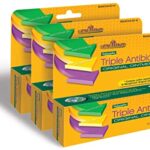Polysporin vs Neosporin: Which Is Better for Me?

What is Polysporin?
Polysporin is a combination medication used to treat skin infections. This product contains Polymyxin and bacitracin and it is used for the treatment of certain types of infections such as infected wounds, burns, skin grafts, boils, and acne. It can also be used to prevent catheter-related infections in people who receive hemodialysis. This medication works by killing the bacteria that cause these infections.
What is Neosporin?
Neosporin is a combination medication that contains neomycin, bacitracin, and polymyxin, antibiotics that work by stopping the growth of bacteria. This medication prevents and treats only bacterial skin infections. It will not work for other types of skin infections (e.g., infections caused by fungi, viruses).
This medication is used to prevent and treat minor skin infections caused by small cuts, scrapes, or burns. It is available without a prescription for self-medication.
How should I use Polysporin?
Apply the Polysporin ointment 1 to 3 times a day over the affected area. Cover with a dressing or leave exposed as directed by your doctor. Do not use the ointment in the eyes. Many things can affect the dose of medication that a person needs, such as body weight, other medical conditions, and other medications. If your doctor has recommended a dose different from the ones listed here, do not change the way that you are using the medication without consulting your doctor.
How should I use Neosporin?
Neosporin is for use on the skin only. Follow all directions on the product package or use as directed by your doctor. If you have any questions, ask your doctor or pharmacist.
Clean and dry the affected skin area. If you are using the ointment, wash your hands first. Then apply a small amount of medication (no more than can fit on your fingertip) in a thin layer on the skin and rub in gently, usually 1 to 3 times a day. Wash your hands after applying the ointment. If you are using the spray, shake the container well before using, then spray a small amount on the affected area as directed, usually 1 to 3 times a day. You may cover small treatment areas with a sterile bandage.
Do not use large amounts of this medication or apply this more often or for a longer period than directed. Your condition will not clear faster, but the risk of side effects may be increased. Do not use this product for longer than 1 week unless directed by your doctor. Do not use this medication on irritated skin in a child’s diaper area unless directed by the doctor. After applying the medication to the diaper area, do not use tight-fitting diapers or plastic pants.
Avoid getting this medication in your eyes or inside the nose or mouth. If this occurs, wipe off the medication and rinse thoroughly with water.
What is the difference between Polysporin and Neosporin?
The major difference between Polysporin and Neosporin is the presence of an additional ingredient (neomycin) in Neosporin. Neomycin is most often used topically to treat superficial infections. This includes treatment of superficial infections from staphylococci and gram-negative bacilli, either alone or in combination.
Another difference between Polysporin and Neosporin is the amount or quantity of bacitracin and polymyxin two common ingredients in the two ointments. While Neosporin contains 400 units of Bacitracin, Polysporin contains 500 units of the same active ingredient. In addition, Polysporin contains 10,000 units of Polymyxin B Sulfate while Neosporin contains just 5,000 units.
Polysporin vs Neosporin: which is better for me?
Neosporin is better than Polysporin Original because of the neomycin sulfate advantage. Studies have shown that neomycin is a particularly useful bactericidal agent for ocular use and is active against gram-positive and gram-negative bacteria, including Staphylococcus aureus. In addition, neomycin is more effective against Proteus vulgaris than is polymyxin and has many moisturizing, skin-healing oils in its ingredients. Nevertheless, Polysporin Complete is a far better medication than Neosporin because of the additional ingredients.





